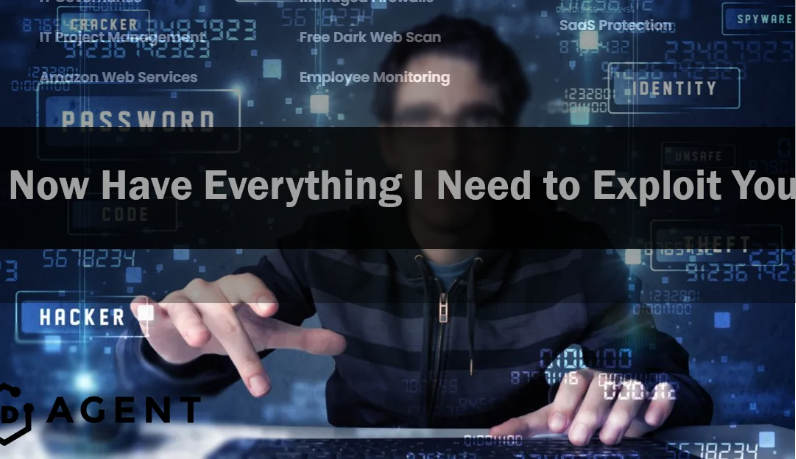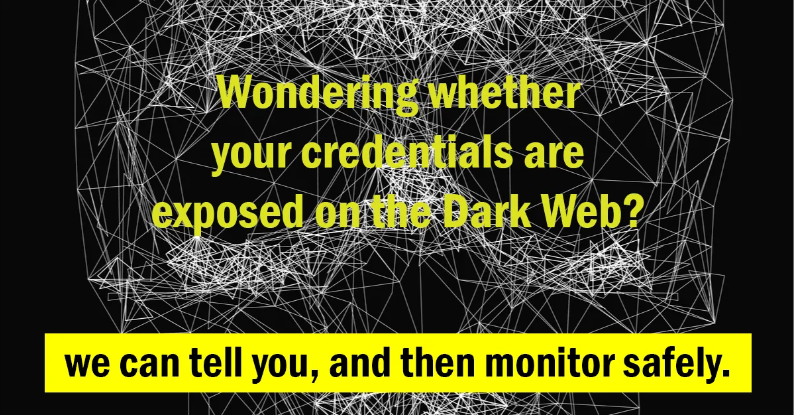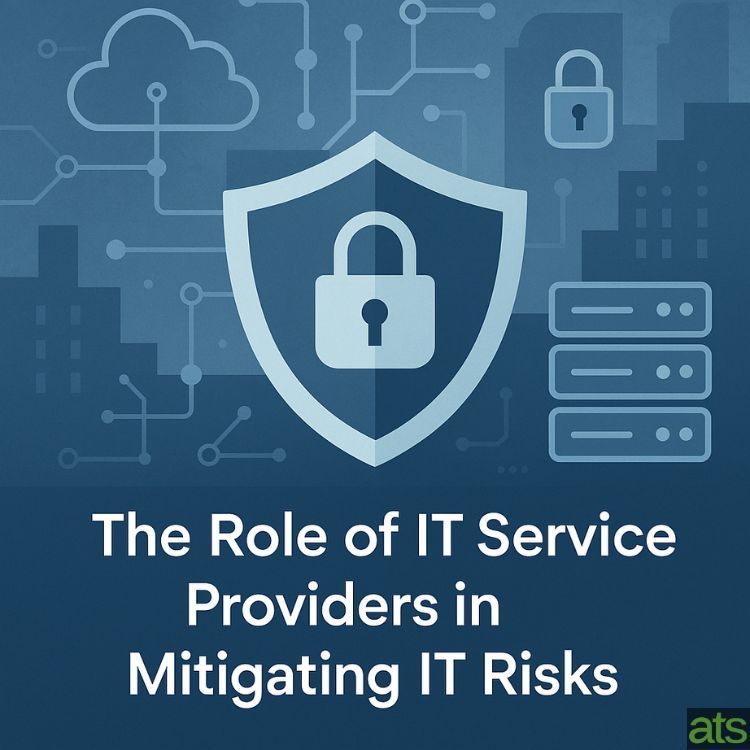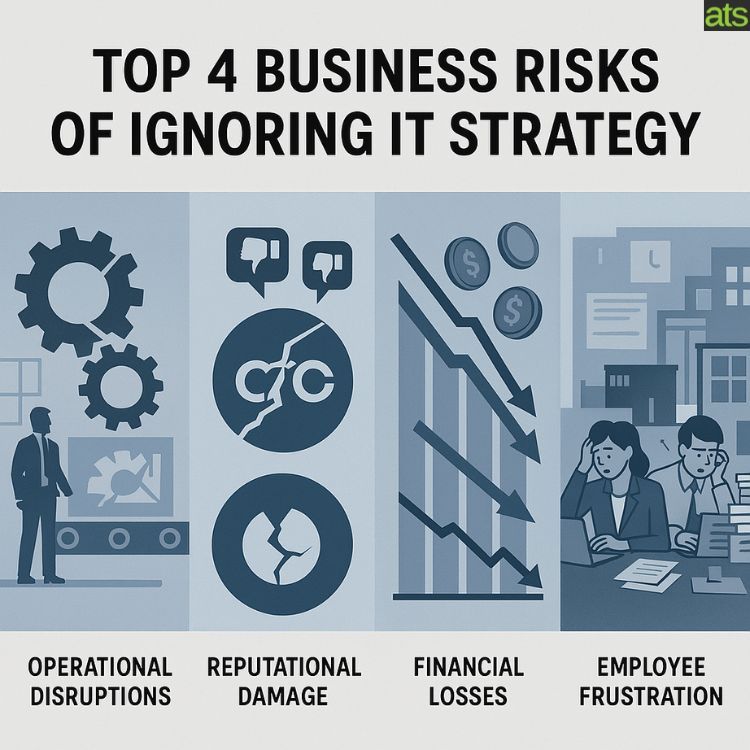Are Your Business Usernames and Passwords on the Dark Web?

- Usernames and Passwords
- Online payment information
- Credit card information
- Driver’s license numbers
- Diploma information
- Passport information
- Medical records
- Subscription and loyalty account information
Why Is This Important for Your Business?
First, consider how many people entrust their personal information to you. Think about how many customers and employees you have. Next, consider the value of the volume of information that you store behind each password, and you will see why even a small business is attractive to criminals. The reason why many criminals target businesses rather than individuals is because of the larger volume of valuable information. Some of your login names and passwords may give criminals access to personal and financial information for your business, your staff or your customers.
How Criminals Take Your Business Information
Internet criminals have several ways of stealing important information from you. These are their common tactics.
Email Phishing
This is often the easiest way to get business or personal information. Email phishing involves a criminal posing as another entity. It could be a credit card company, another vendor or any other trusted organization. However, the email address is usually different or is spoofed. The email prompts the reader to visit another site and enter sensitive credentials or information. After that, the information is stolen and misappropriated.
Spear Phishing
This is a more specific type of phishing that often involves a criminal posing as an individual. The criminal may pose as an executive or a manager from within the company. Spear phishing is a personalized attack that is designed for the email recipient. The message usually indicates urgency or invokes fear. With spear phishing, the goal is to produce a psychological effect that forces the reader to enter personal credentials or sensitive information on another site. It may also prompt the reader to download a file.
Ransomware
In some phishing scams, criminals may attach harmful files that can lock or encrypt the recipient’s computer. This happens if the attachment is downloaded. Since phishing emails look legitimate, readers often trust the source enough to view an attachment. If you are the victim of a ransomware attack, your first clue is often a popup message that lets you know that your files have been encrypted. However, thieves usually steal the data before they encrypt it. You may receive a message that tells you to visit a site and pay a ransom to regain file access. On the site, you may be instructed to pay with bitcoin or another cryptocurrency. If you do not comply with the deadline, the ransom may increase.
Is Business Information Theft Preventable?
Although you can take steps to reduce your risks, the problem is not completely preventable. Businesses of all sizes that store information online should have proper cyber insurance. Good insurance can offset potential lawsuit costs, expenses from business interruptions and more. Also, businesses can educate employees. These are some helpful steps to stay safer from phishing and harmful malware:
- Never download an attachment without verifying the sender first.
- Do not rely on display names or display addresses for verification.
- Do not reply to emails that invoke fear.
- Be wary of emails with awkward wording or spelling mistakes.
- View and inspect the email header.
The process for checking the header varies from one email provider to another. Find out how to do this for company emails and other personal emails that employees may use at work. Even if the display name and the address are spoofed, the header should show if the actual address that sent the email differs from the display information. In addition to training, employees need regular practice to maintain their detection skills.
How to Enhance Your Cybersecurity
Since the darknet is a dangerous area, it is a risky and time-consuming task to try to monitor it yourself for your company’s information. Fortunately, there is an easier cybersecurity solution. We offer deep scanning and managed security services. With a special tool, we regularly search the darknet for your information. If we find it, we let you know how to act quickly to prevent criminals from using it against you.
Our thorough approach also includes hands-on education. We simulate phishing emails to your business. In this way, you and your employees can test your skills for identifying phishing attempts. We send you the feedback to give you a clearer picture of how effective our training is.
Businesses of all sizes should consider the repercussions of their information being sold on the darknet. Although many small business owners may not think that they are likely targets, Forbes reported that small businesses comprised nearly 60 per cent of cyber attacks on businesses in 2018. A security breach can go undetected for months, which gives criminals plenty of time to steal more information from your business. We will be happy to show you how your business can enjoy better protection through managed security services. Please contact us for a free audit.

References
https://www.experian.com/blogs/ask-experian/heres-how-much-your-personal-information-is-selling-for-on-the-dark-web/
https://www.cybercrimejournal.com/broadhurstetalijcc2014vol8issue1.pdf
https://www.forbes.com/sites/ivywalker/2019/01/31/cybercriminals-have-your-business-their-crosshairs-and-your-employees-are-in-cahoots-with-them/#26aeb2151953


